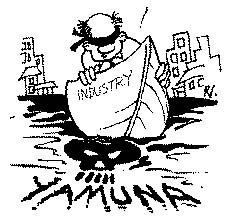PUBLIC OUTCRY
 N Venkatachala
N Venkatachala
Chairperson, National Environment Appellate Authority
The government must, first of all, take strict action to resolve matters relating to clean water, clean air and human health because every citizen has a right to these basic necessities of life. Adequate laws to safeguard the environment are already in existence, but implementation of these laws has always been a problem with the administration. Laws relating to the environment give sufficient powers to the central and state governments to control, prevent and abate pollution. But there is a failure on the part of the government in abiding by these laws. This is when the Supreme Court steps in.
In the Yamuna pollution case, the Supreme Court has rightly banned the discharge of untreated industrial effluents into the river. Many chemical pollutants that are being directed into the river by the industries have detrimental effects on the human health. The government should have, in the first place, ensured that these pollutants were not directly dumped into the Yamuna and directed the industries to treat their wastes by installing effluent treatment plants ( etp s).
If appropriate technologies are introduced, then it is possible to prevent pollution. It is also the task of the government to ensure that the effluent treatment devices are functioning on a regular basis. If proper effort is made by the state and central governments under the provisions of the relevant acts, there should be no difficulty in controlling environmental pollution in the country. Yet again, it is essential for the citizens, particularly when the authorities are apathetic to their rights, to move the court for redressal of their grievances.
Manu Bhatnagar
Advisor, Natural Heritage Division
Indian National Trust for Art and Cultural Heritage ( intach )
The Delhi government has always taken soft steps in a number of important issues which require stringent measures. Reopening of the industries that pollute the Yamuna is one of them. Almost immediately after the industries were reopened in January, there were newspaper reports stating that several of them had either made false claims of having installed etp s or that the etp s were not functioning effectively. I have seen some of these industries and they are build in such a way that there is absolutely no space left to install an efficient effluent treatment unit.
The steps taken by the government in this matter are very sporadic. There is little doubt that these industries will continue to pollute the Yamuna. The court is not going to get the desired result until the government takes harsh steps and closes down these polluting industries once and for all.
The fallout of such an action will naturally be employment problems. But, as I recall, in November 1996, when around 168 polluting industries were closed down, the industry owners were told to compensate the workers for one full year if the unit could not be relocated with all the desired standards. So this can be a solution yet again.
Ravi Agarwal
Chief coordinator, Srishti, environmental ngo
What kind of etp s are the industries talking about here? There are a whole lot of parameters involved in defining the cleanliness standard for drinking water. Besides, it should be kept in mind that etp s are effective in treating harmful elements in polluted water only to a certain extent. Simply put, a whole lot of toxic chemicals remain in the water even after it has been
